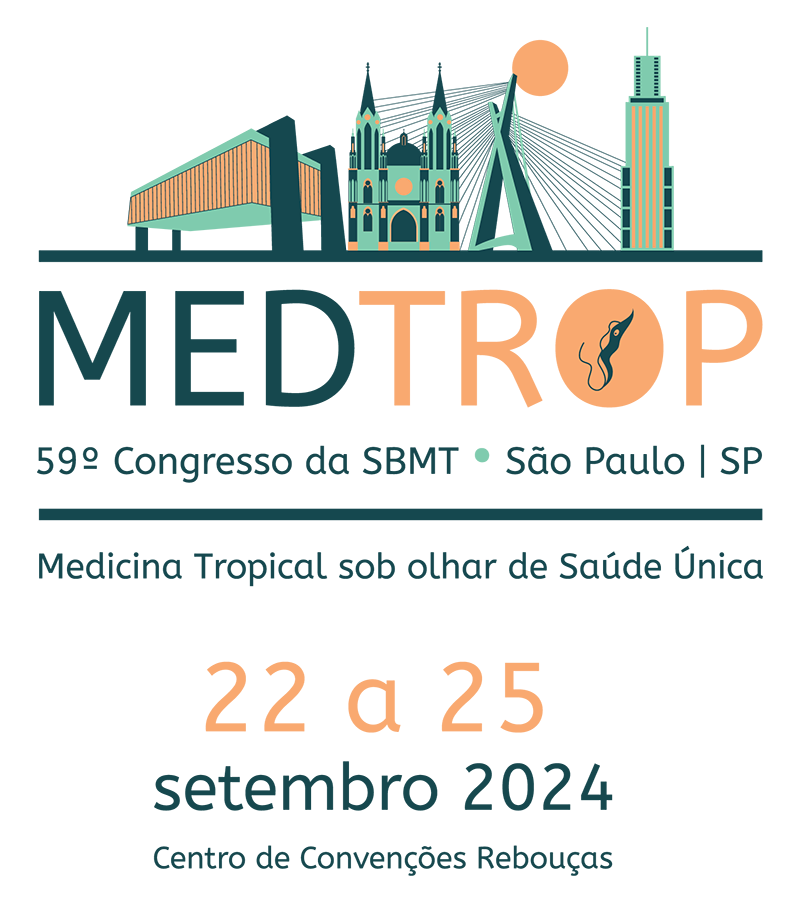Dados do Trabalho
Título
EVALUATION OF QUERCETIN'S IMMUNOMODULATORY ACTIVITY IN THE CONTEXT OF Leishmania (Leishmania) Infantum INFECTION
Introdução
Leishmaniasis is the most important neglected tropical disease for the World Health Organization (WHO). Current treatment involves highly toxic drugs such as pentavalent antimonials, Amphotericin B (AmB), and miltefosine. Given this context, searching for new molecules capable of treating leishmaniasis without exerting such significant toxicity becomes imperative. Flavonoids are one of the alternative classes of molecules currently being studied to treat leishmaniasis. Among this group, quercetin has been showed potential in treating this disease through its immunomodulatory action.
Objetivo (s)
In this study, we aimed to evaluate the immunomodulatory activity of quercetin in vitro by determining the production of Reactive Oxygen Species (ROS), Nitric Oxide (NO), and the infection rate of Peripheral Blood Mononuclear Cells (PBMCs) with L. infantum.
Material e Métodos
Blood samples (15-20 mL) were collected from healthy individuals, and PBMCs were extracted using Ficoll-Paque gradient. PBMCs were then infected with L. infantum (PBMC 1:10 parasites) under different conditions: untreated, quercetin-treated, AmB-treated, quercetin with AmB, apocynin as an antioxidant control, and LPS as an oxidant control. Samples were stained with Carboxyfluorescein succinimidyl ester (CFSE), anti-CD14-APC, Dihydroethidium (DHE), and DAF-FM Diacetate, and analyzed using a BD FACSCanto™ II flow cytometer. Data were normalized, and statistical tests (ANOVA One-Way and Tukey, p ≤ 0.05*) were performed. This study was approved by the Ethics Committee for Human Research at Lauro Wanderley University Hospital/UFPB (CAAE: 17813013.8.0000.5183).
Resultados e Conclusão
Quercetin significantly decreased the infection rate (CFSE+CD14+) of monocytes (CD14+) by L. infantum (CFSE+), with or without AmB. Additionally, quercetin increased ROS production in infected monocytes, with or without AmB, but did not increase ROS in uninfected monocytes. This is viewed positively as increased ROS production during infection can help kill intracellular amastigotes. However, whether alone or with AmB, quercetin did not modulate NO production in monocytes, but future studies with different treatment periods may strengthen these findings. Quercetin is well-known and has already been studied in Leishmania sp. infection. Here, we observed that quercetin helped decrease monocyte infection by L. infantum promastigotes and positively modulated ROS production. These results demonstrate that quercetin is a strong candidate as an alternative therapy for leishmaniasis.
Palavras Chave
flavonoids; quercetin; Leishmaniasis; immunomodulation; treatment.
Área
Eixo 06 | 2.Protozooses humanas e veterinárias - Leishmaniose
Prêmio Jovem Pesquisador
2.Concorrer na categoria - Mestrado
Autores
Leonardo Lima Cardoso, Delva Fonseca Lamec Thyares, Ana Letícia Monteiro Fernandes, Shayenne Eduarda Ramos Vanderley, Hugo Juvino Isidro Anacleto, Rosália Santos Ferreira, Fernando Cézar Comberlang, Fernanda Silva Almeida, Tatjana Souza Lima Keesen

 Português
Português English
English